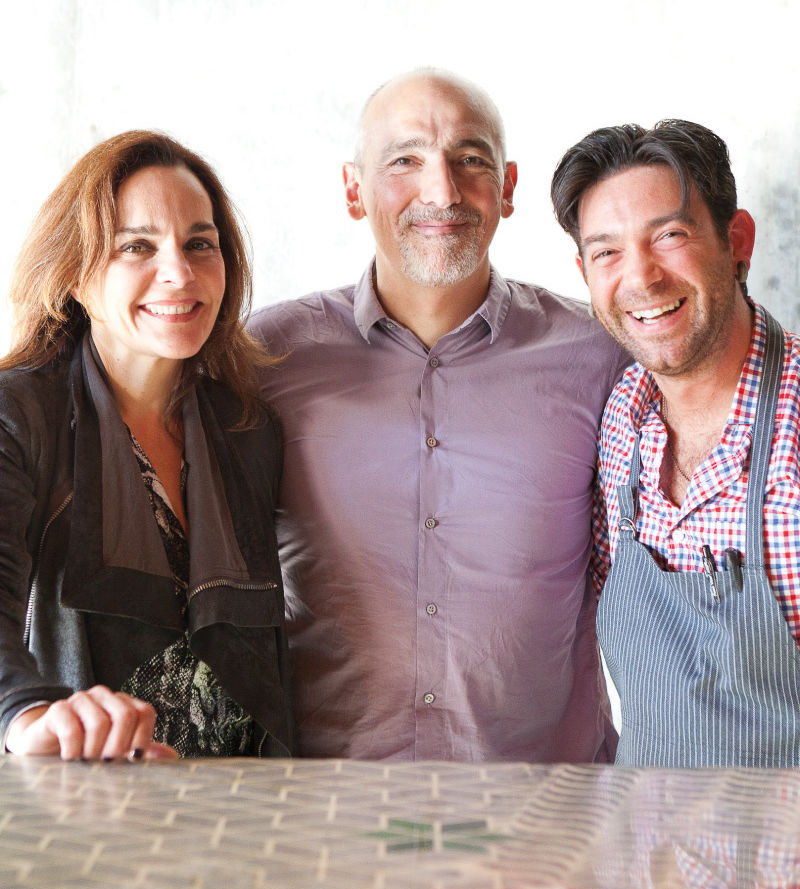This post was originally published on this site
Mamnoon owners Racha and Wassef Haroun, with opening chef Garrett Melkonian.
In late 2012, Mamnoon debuted something unprecedented in Seattle: A no-holds- (nor expenses)-barred commitment to creating the best-possible Middle Eastern restaurant. The all-in aesthetics screamed Miami, but the depth of flavors stayed rooted in Damascus. The menu came from the minds and recipes of extended family from throughout Syria, Iran, and surrounds, executed by the parade of talented chefs who marched through the kitchens—Garrett Melkonian, Jason Stratton, Carrie Mashaney, David Gurewitz, Sheena Eliz, Nicco Muratore.
This week, Seattle Met’s 2013 Restaurant of the Year announced that it will serve its final mezze on Sunday, September 14. Sleek and modern, with unbridled enthusiasm and careful research behind its menu of foods from a variety of Middle Eastern cultures and countries, it remained steadfast in its excellence; a reliable choice for more than a decade. But the last two years brought more than the restaurant could handle.
“Surviving lock down, family meals, social distancing, masking, and adapting to new dining behaviors was tough, but it was a breeze compared to what the ‘new normal’ is like,” wrote the Azmi Haroun, son of Mamnoon founders Racha and Wassef, pointing to a decline in “healthy urban environment” and a rise in the costs of running a restaurant.
Despite these issues, the company intends on keeping its other two restaurants, Mamnoon Street and mBar, open, and will continue operating Mamnoon Fine Foods, which produces packaged mezze sold at grocery stores. Earlier this year, the company also closed Mamnooncita, the short-lived Lebanese-Mexican fast-casual operation in South Lake Union, and Hanoon, its Kirkland restaurant.
Mamnoon’s flatbread topped with tomato and olive salad.
But Mamnoon was always the heart of the restaurant group, its first-born and flagship. It opened at a time when Syria came up far more often in conversations about politics and refugees than food, adding nuance and forgotten (or ignored) narratives to our understanding of the Middle East. “It was important for us to connect Seattleites to the struggles of people in Syria, Lebanon, and Palestine, and connect our global communities to Seattle,” wrote Azmi in the restaurant’s goodbye letter. “[It was] part of a first wave of forward-thinking Levantine restaurants that allowed the world to understand us as modern, resilient, culturally proud, and creative people.”
While Mamnoon will close soon, its influence on the city will remain, in the ways it has pushed Seattle’s restaurant scene, invested in its chefs, and changed how local diners think about Middle Eastern cuisine.
